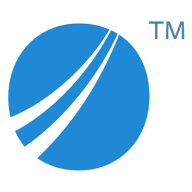

Find out in this report how the two Cloud Data Integration solutions compare in terms of features, pricing, service and support, easy of deployment, and ROI.
Leadership prefers to utilize third-party tools, such as Snowflake, which has both storage and ELT features.
The stability and performance remain issues.
Compared to Collibra Catalog, where the value is noticeable within six months.
Due to the tool's maturity limitations, solutions are not always simple and often require workarounds.
Even after going out of service support, they still reached back to me whenever I raised tickets.
We expect more responsive assistance because they have the expertise since Informatica is their tool, but I don't see enough expertise on the Informatica support side.
Having a local partner was crucial for us while they were there.
TIBCO's support, especially for integration products, is swift.
I have used the product over multiple systems and was able to write reports for large data sets without any performance issues.
As a SaaS platform, IDMC is quite scalable and provides complete flexibility.
There are many options available, and the licensing model is quite good, supporting our needs effectively.
Stability is crucial because IDMC holds business-critical data, and it needs to be available all the time for business users.
There are substantial stability issues with Informatica Cloud Data Quality on the cloud.
I find the stability to be good, with occasional restarts required every two to three months due to glitches.
There are no significant stability issues as long as the product's capabilities are understood and not overly pushed.
Overall, TIBCO Spotfire is a good product and has been a stable platform.
The tool needs to mature in terms of category-specific attributes or dynamic attributes.
The current solution requires code-writing and tweaking, while other solutions offer material-level matches.
If the development interface could be optimized to have fewer modules, it would be greatly beneficial.
TIBCO Spotfire and ClickView need improvement in scheduling, which is critical yet lacking in quality.
It could be very useful if the coding part of using the platform could be more user-friendly in terms of visual capability.
The usage and flexibility need to be better compared to other analytical tools.
It ranges from a quarter million to a couple of million a year.
Informatica Intelligent Cloud Services is affordable for my specific use cases, with the pricing being rated three or four on a scale where one is very cheap.
Regarding pricing, compared to other tools I have worked with, Informatica offers competitive pricing, which I find not high in terms of starting strategy.
TIBCO Spotfire's pricing is high, particularly in traditional markets like Turkey, impacting market penetration.
The platform's ability to pull in data from other platforms without the need for an additional integration tool enhances its appeal.
The connectors serve as the main functionality, making data integration processes more efficient by saving time and effort.
We could run data quality rules as part of Service Bus, which ensured the integrity of customer information before it was entered into our database.
TIBCO Spotfire integrates with R and Python, offering a differentiator from the competition.
I think having Python included is a big win because you get the chance to customize your algorithm and your in-house development without having a big dependency on a third party.
TIBCO Spotfire offers excellent features, including flexibility and the ability to do much better compared to other analytical tools.


| Company Size | Count |
|---|---|
| Small Business | 51 |
| Midsize Enterprise | 27 |
| Large Enterprise | 153 |
| Company Size | Count |
|---|---|
| Small Business | 18 |
| Midsize Enterprise | 12 |
| Large Enterprise | 42 |
Informatica Intelligent Data Management Cloud (IDMC) offers seamless integration of master data management, data quality, and data integration with a cloud-native architecture supporting multiple data management styles, optimizing data governance through metadata management.
IDMC enhances data synchronization and mapping tasks, utilizing a broad range of connectors to interact efficiently with data sources. Its precise address validation via AddressDoctor and intuitive navigation bolster user empowerment, delivering agility, scalability, and security in data governance. Despite its strengths, areas like ease of use, SAP integration, and reporting could benefit from enhancements. Connectivity issues and workflow complexities are noted, needing improvements in performance, support, and licensing cost. Users demand expanded ETL capabilities, real-time processing, and broader data source support to address growing data needs.
What are the key features of IDMC?In industries such as banking, healthcare, and telecom, IDMC is implemented for data integration, cloud migration, and enhancing data quality. Its capabilities are crucial for metadata management, lineage tracking, and real-time processing, ensuring high data quality and streamlined operations.
TIBCO Spotfire is a versatile data analytics platform that can handle large datasets and be deployed on-premise or in the cloud. Its dynamic reporting, easy creation of dynamic dashboards, and highly customizable tool make it a valuable asset for process data analysis, industrial performance dashboards, problem root cause analysis, business intelligence, and real-time analytics for IoT devices in the energy sector.
The solution also offers data science functions, map visuals, R and Python integration, and the ability to write HTML and JavaScript text areas. Spotfire has helped organizations deliver projects more efficiently and cost-effectively, allowing for faster data analysis.
We monitor all Cloud Data Integration reviews to prevent fraudulent reviews and keep review quality high. We do not post reviews by company employees or direct competitors. We validate each review for authenticity via cross-reference with LinkedIn, and personal follow-up with the reviewer when necessary.